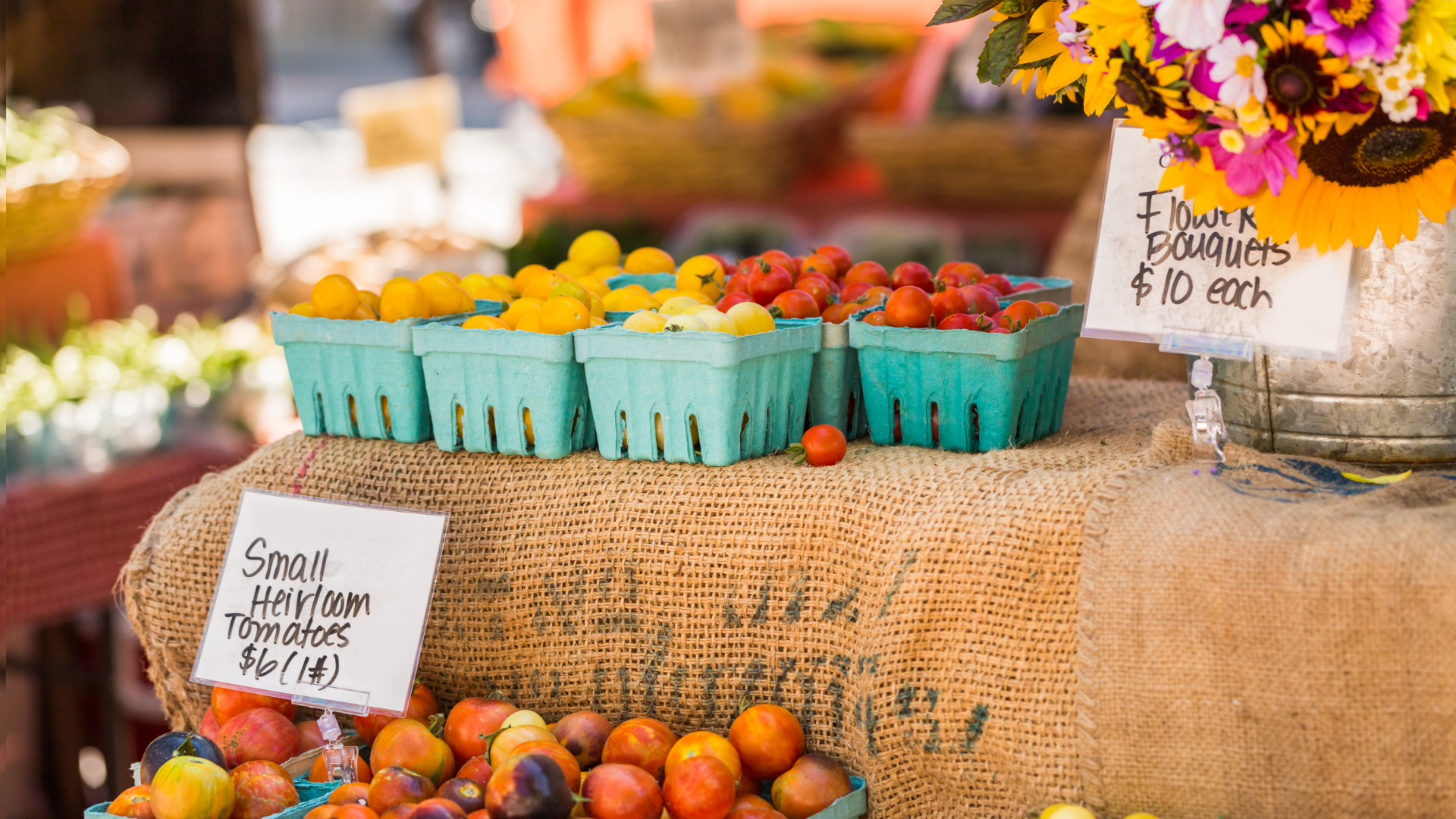What better time to liven up your kitchen than the Spring? Spring is a time of new beginnings, so here are 3 fresh ways to expand your kitchen’s involvement in your food community. This information comes straight from the Shared Kitchen Toolkit.
Farmers Markets
Shared kitchens and farmers markets are natural partners. Not only do farmers markets provide opportunities for sales and consumer feedback, they also help kitchen clients find local sources for ingredients. Sourcing relationships between producers and kitchen clients can help strengthen the local food system and support the producer and entrepreneur. Businesses may get fresher produce or meat, as well as marketing differentiation, and farms get a new source of demand. Establishing a fair price that supports both the buyer and seller can be the biggest hurdle to developing these relationships.
Hope & Main in Warren, Rhode Island, pairs their shared kitchen beautifully with year-round market events. From June through October, they host the Schoolyard Market, which features 30 of their own clients and others in the community. When that season ends, they roll into offering their indoor Meet Your Maker events on select days throughout the winter months.
Farmers markets can advance the health and nutrition goals of kitchens and communities by expanding access to fresh local foods and providing a venue for healthy cooking demonstrations and outreach. There may be opportunities to cultivate partnerships with health and nutrition organizations in your community to support these activities and help fund or manage the market.
Farmers markets can contribute to neighborhood revitalization and increase foot traffic to surrounding local businesses. However, it is important to consider the existing farmers markets in your area to ensure you are not competing directly with those markets. If you are thinking about adding a farmers market to your kitchen strategy, check out the following resources for more information:
- Farmers Market Toolkit
- USDA Farmers Market Promotion Program (funding)
- National Farmers Market Directory
Chef or Product Tastings
Tastings are another fun way to involve your kitchen in the community and market your clients’ products. Communities and foodies want to try foods made by local food entrepreneurs, and this is a great opportunity to tell their story and let your community get to know the people and kitchen behind the products. You can host a special event or open house at your kitchen, put on a pop-up exclusively for a tasting, or tack it onto an existing market or event.
Tastings are especially helpful if clients make unique products that people may not know how to prepare or eat, as the clients get to demonstrate this. There are various forms of tastings you can host ranging from casual to upscale, depending on your goal. If you are looking to help your clients do market research or gain traction in the community, you may consider hosting a tasting free of charge. Or, if you are looking to get the word out about your kitchen and clients, you may host an open house. For example, Cleveland Central Kitchen Incubator hosted an open house and offered free tickets to the public to come to the kitchen and taste products made by their graduating cohort of clients.
If a chef or client already has a following, you can host a private event and sell tickets. Having the client do some or all of the cooking in front of guests makes the tasting more interactive as guests anxiously await to taste the product they are eyeing and smelling. While cooking, the client can teach guests a trick or two about the best way to prepare and eat the product, and invite them to be involved in a simple task if the product allows. Clients can also sell products at the tasting. If they do not have a product for sale, they should let guests know where to find it later.
Community Dinners
Community dinners are a great way to cultivate community, generate buzz and market your kitchen and clients to new audiences.
You can host a dinner at your facility if you have the right space and atmosphere, or you can work with community partners to host one off-site. Community dinners are open to the public and guests pay for a ticket. They are often themed (cultural, seasonal, social cause) and your clients or other chefs create dishes around the theme. Sometimes guests and community members participate in the meal production. For instance, Food Innovation Network hosts community dinners to showcase traditional cultural foods of their local residents and incubator participants.
These dinners require time, planning, and often the help of volunteers. If the meal is offered for free, it also requires funding or sponsorship. You will need to set a goal and theme for the event, identify community partners, create a budget and timeline, book the space, market the event to the public, plan and prepare the food, and organize event programming. time-intensive, community dinners are valuable for integrating your kitchen into the local community. These dinners can be an effective marketing tool for your kitchen and clients. Community dinner theme ideas:
- Dinner and a film screening, presentation, comedic performance, music, or other show
- Dinner and wine, beer or spirits pairing
- Dinner on the farm, with a farm tour
- Harvest celebration events
- Dinner in the dark
- Cultural cuisine
- Food history of the area
- Unique set of ingredients (nightshades, dishes with insects, chocolate)
- Dinner for a cause (donate proceeds or food to a local nonprofit or have a facilitated discussion around an issue of interest)
- Festive holiday events (Christmas, Valentine’s Day, etc.)
- Other ideas unique to your community or neighborhood
Looking for more advice for operating your shared kitchen space? Check out our Shared Kitchen Operations Manual for more information.
